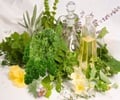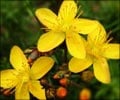Coffee and tea have been proposed to limit the progression of liver fibrosis in established liver disease by reducing liver stiffness.
Highlights
- Drinking coffee and herbal tea may protect against liver fibrosis.
- Coffee has health benefits that involve liver enzyme elevations, viral hepatitis, NAFLD, cirrhosis, and liver cancer.
- Frequent coffee and any herbal tea consumption, even in small amounts, were significantly associated with lower liver stiffness values.
According to a new study published in the Journal of Hepatology, researchers found that drinking coffee and herbal tea may protect against liver fibrosis, estimated as the degree of liver stiffness, which is high in extensive scarring of the liver.
Because these beverages are popular, widely available, and inexpensive, they could have the potential to become important in the prevention of advanced liver disease.
"Over the past decades, we gradually deviated towards more unhealthy habits, including a sedentary lifestyle, decreased physical activity, and consumption of a 'Happy Diet'," explains lead author Louise J. M. Alferink.
Antioxidants in Coffee Help Fight Liver Disease
Sarwa Darwish Murad, MD, PhD, principal investigator of the study and hepatologist at the Erasmus MC University Medical Center, continues, "There is quite some epidemiological, but also experimental data suggesting that coffee has health benefits on liver enzyme elevations, viral hepatitis, NAFLD, cirrhosis, and liver cancer.”
Data was gathered on 2,424 participants of the Rotterdam study, a large population-based cohort study including participants 45 years or older living in a suburb of Rotterdam, The Netherlands.
All participants underwent an extensive physical work-up, including data collection for anthropometrics, blood sampling, hepatological imaging using abdominal ultrasound and Fibroscan, which quantitatively measures liver stiffness.
In addition, they completed an externally validated 389-item Food Frequency Questionnaire, which included detailed information on coffee and tea consumption.
Coffee and overall tea consumption was divided into three categories: none, moderate (>0-3 cups per day), and frequent (?3). Tea consumption was categorized by herbal, green, or black tea and further into none (0) or any (>0) consumption.
Investigators found that frequent coffee consumption was significantly associated with lower odds of high liver stiffness values, i.e. less scarring of the liver, independent of lifestyle, metabolic, and environmental traits.
When they looked at the whole range of liver stiffness values, they found that both frequent coffee and any herbal tea consumption, even in small amounts, were significantly associated with lower liver stiffness values.
Finally, while no direct association was found between either coffee or tea and the presence of fat accumulation in the liver (NAFLD) per se, the effect of coffee on lowering the liver stiffness was significant in both the group with and without liver fat.
The authors therefore concluded that frequent coffee and herbal tea seem to have beneficial effects on preventing liver scarring even before overt liver disease has developed.
Limitations of the Study
In fact, the study included only an elderly Caucasian population and there were few participants in the no-coffee or no-tea control groups, which limit a straightforward conclusion about the effect of coffee and tea on the liver.
The amount of tea consumed was generally low, making estimation of any protective effect difficult. Further, they note that more than 100 components are present in coffee and tea, including polyphenols and caffeine, which are contained in both beverages in very different and variable amounts.
Hence, when asked "Should we add regular coffee and tea breaks to our daily life?” Dr. Petta's and Dr. Marchesini's conclusion is, "Before this policy can be recommended, prospective studies are needed to identify the optimum amounts and the type(s) of coffee and tea leading to more favorable liver outcomes."
Reference
- Louise J. M. Alferink et al., Coffee and herbal tea consumption is associated with lower liver stiffness in the general population: The Rotterdam study, Journal of Hepatology (2017) http://dx.doi.org/10.1016/j.jhep.2017.03.013.
Source-Medindia
















